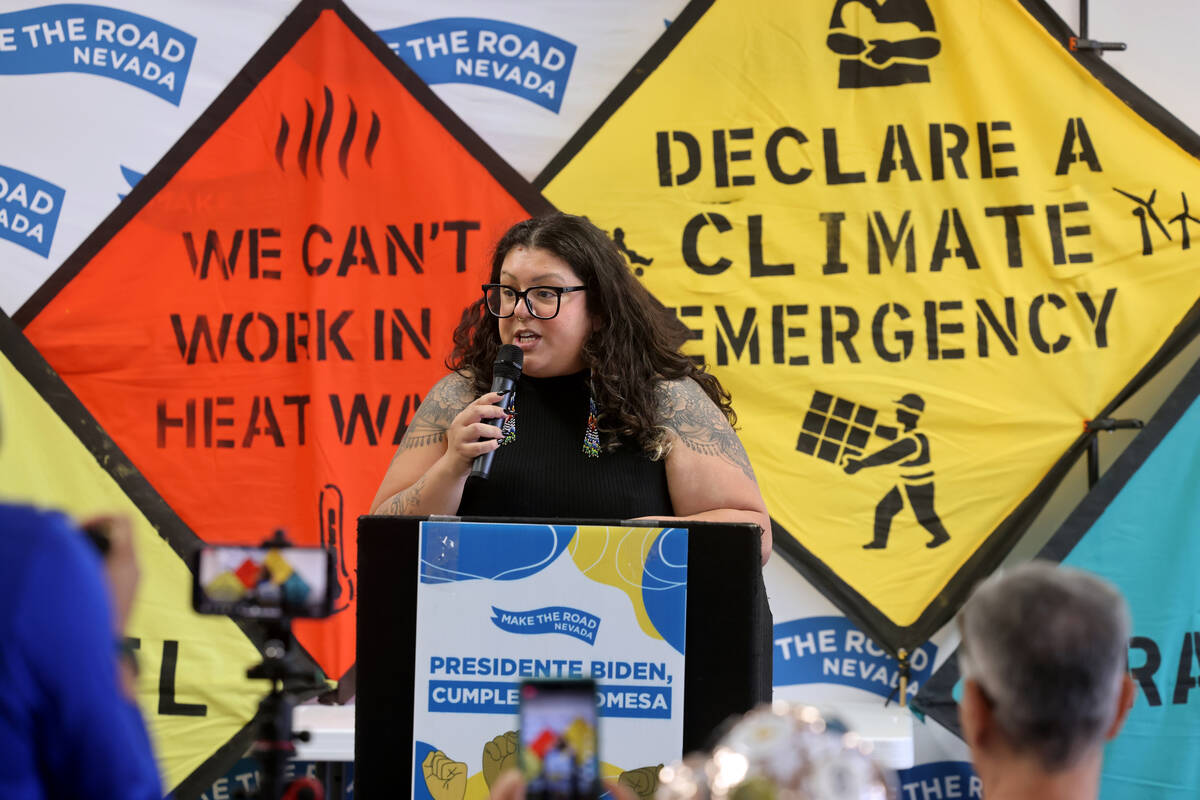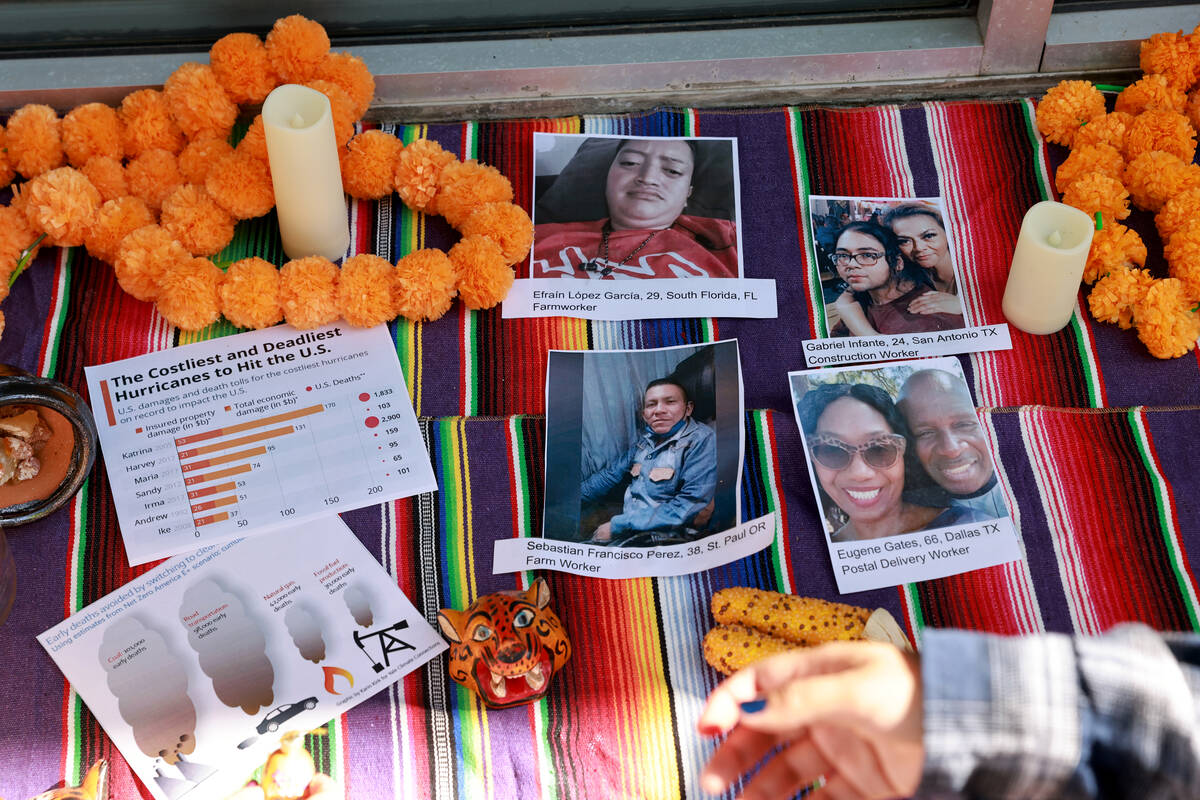‘An important next step’: Nevada workers may soon get protections against heat
In the battle against deadly summer heat, workers may soon get protections that could save their lives.
The U.S. Department of Labor proposed a first-of-its-kind rule Tuesday that would require employers across the country to create a heat action plan for an estimated 36 million workers, many of whom currently have no mandated breaks or regular access to shade and water.
At a news conference at the Washington, D.C., Emergency Operations Center, President Joe Biden called the regulation a necessary measure to fight climate change.
“These climate-fueled extreme weather events don’t just affect people’s lives,” Biden said. “They also cost money. They hurt the economy, and they have a significant negative psychological effect on people.”
Like the rest of the country, Las Vegas is only getting hotter, and more people are dying every year in Clark County and beyond from heat-related illness.
The only states with workplace protections against heat are California, Colorado, Oregon, Minnesota and Washington.
“Workers all over the country are passing out, suffering heat stroke and dying from heat exposure from just doing their jobs, and something must be done to protect them,” Assistant Secretary for Occupational Safety and Health Doug Parker said in a statement. “Today’s proposal is an important next step in the process.”
Rule would center on worker needs
Should the rule become final, it would dramatically shift how businesses are regulated in states without a heat standard for workers. States would need to implement protections at least as strict as what’s outlined in the document.
Employers would need to pinpoint heat hazards, write an emergency response plan for heat-related illnesses, and train employees and their supervisors on how to identify signs of those illnesses. Shade and water, breaks and allowing for new workers to adjust to heat are required, too.
Some Republican politicians and industry leaders have come out against regulations throughout the past year, like when governors from both Florida and Texas stifled local, minority-led efforts to establish protections. They argue that requirements should be tailored to specific industries.
A Department of Labor spokesperson said he did not know how long the public comment period for the proposed rule would last. The need for congressional approval also could present a hurdle for the rule to be implemented in its final form.
One of the workers who would benefit is Reyna Valdivias, a Las Vegas gardener who volunteers with nonprofit Make the Road Nevada, which held a rally in May calling for heat protections for workers.
Valdivias considers herself lucky to work for her father’s small business. Others who work for larger businesses have less consistent access to basic care in the blistering Mojave Desert heat, she said.
“My father’s the owner of our small business, so he looks after us and makes sure we’re hydrated,” Valdivias said. “It would be very different if it were to be a large company.”
What about Nevada’s state efforts?
In Nevada, a state bill for worker protections failed in 2023, but Nevada’s Occupational Safety and Health Administration is in the process of developing a similar rule that would require a heat action plan from employers in the Silver State.
Teri Williams, a spokeswoman for the state Division of Business and Industry, which oversees Nevada’s OSHA, said the ongoing state process to implement a heat rule will continue.
Nevada will follow with the federal rule should it be implemented, she said.
“The division is monitoring the federal rulemaking process and will ensure that Nevada complies with the requirement to be at least as effective as the federal rules,” Williams said.
Contact Alan at ahalaly@reviewjournal.com. Follow @AlanHalaly on X. The Associated Press contributed to this report.


















